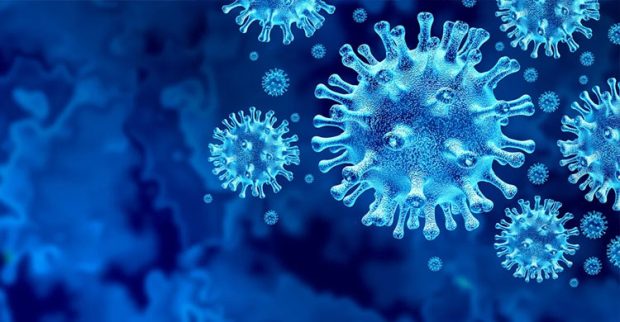
Feeling forgetful after COVID? Study shows the virus can affect short-term memory
PTI, Dec 7, 2022, 12:14 PM IST

Image for representation(PTI)
Although it’s well known that COVID affects the respiratory system, it’s perhaps less well known that the virus can also affect cognitive function.
Many people with COVID experience a phenomenon commonly called “brain fog”, which can include problems remembering, concentrating and performing daily tasks. Brain fog can also be a symptom of long COVID, where people suffer ongoing COVID symptoms for months, or even years, after infection.
In a recent study, we found that COVID negatively impacts working memory function, but only in adults aged 25 and over. Our results suggest that memory function can recover over time after a COVID infection, but people with ongoing symptoms may continue to have difficulty with their working memory.
Working memory, a form of short-term memory, allows us to store and retrieve information while performing tasks such as problem solving, reading or having a conversation. So impaired working memory function can have a significant impact on a person’s daily life.
While previous studies have demonstrated a relationship between COVID and cognitive function, they’ve typically involved lengthy surveys with multiple tasks, and often focused only on those most severely affected by a COVID infection.
We wanted to develop something simpler which would engage as wide an audience as possible and allow us to rapidly assess the impact of COVID on working memory function specifically. So we designed an anonymous online survey and memory quiz with elements of gamification that could be completed quickly via a variety of platforms including smartphones, tablets and PCs.
The survey included questions about participants’ COVID status and any ongoing symptoms, if applicable. They were also asked to rate any cognitive problems they had, for example with their ability to remember things or concentrate on tasks. The quiz was a visual working memory game where participants had to remember and recall pictures of fruits, animals, numbers or objects.
As our survey and memory quiz can be completed quickly, they could potentially also be used as an assessment tool in patients who have limited attention spans or those with other conditions affecting memory, such as dementia.
Memory recovery More than 5,400 people took part in our study between December 2020 and July 2021. We had participants across a range of age groups, from 18-24 to 85 plus. Some 31.4 per cent of participants had had COVID, while 68.6 per cent had not.
Memory scores for the COVID group were significantly lower compared to the non-COVID group in every age category except the youngest group, 18- to 24-year-olds. We observed a positive correlation between the number of months since having had COVID (less than one to 17) and memory scores. This suggests that memory function can recover over time after a COVID infection.
The difference with long COVID Roughly 50 per cent of the COVID group reported having ongoing COVID symptoms, and these participants were more likely to have lower memory scores, compared with those who had COVID but didn’t have ongoing symptoms.
Although we don’t know which COVID variants participants in our research were infected with, we conducted the study at a time when alpha and delta were the prominent variants in circulation, before omicron emerged. We need more research to determine the impact of omicron variants on working memory function, as well as whether vaccinations might play a protective role.
Our study also cannot reveal what it is about a COVID infection that causes memory deficits and brain fog. Future studies will focus on measuring brain activity in people with and without long COVID while they’re performing working memory tasks, using techniques such as electroencephalography and functional magnetic resonance imaging. This approach will hopefully provide us with new insights on how COVID affects the brain in those with long COVID.
Our finding that working memory appears to improve over time can hopefully provide some reassurance. But since working memory function can continue to be impaired in those with ongoing COVID symptoms, we would suggest that a holistic approach to treating long COVID patients should include some focus on memory.
Udayavani is now on Telegram. Click here to join our channel and stay updated with the latest news.
Top News

Related Articles More

A 4.45 billion-year-old crystal from Mars reveals the planet had water from the beginning

Charmadi Ghat highway set for widening: Work likely to begin in January 2025

Key to past: Indore man collects 570 typewriters from across the world

Kambala: Tradition and modernity in coastal Karnataka

Dairy farmers in K’taka border areas selling milk to Kerala for higher price!
MUST WATCH
Latest Additions

No one has right to break law: BJP on Sambhal violence

Ullal: Auto-rickshaw accident near Konaje claims driver’s life

Congress victory in bypolls not a clean chit to CM in MUDA case: R Ashoka

IPL 2025 | Got someone who can do captaincy job: Ricky Ponting on Shreyas Iyer

Will review INDI alliance’s dismal performance in Maharashtra, says Tejashwi Yadav
Thanks for visiting Udayavani
You seem to have an Ad Blocker on.
To continue reading, please turn it off or whitelist Udayavani.




















